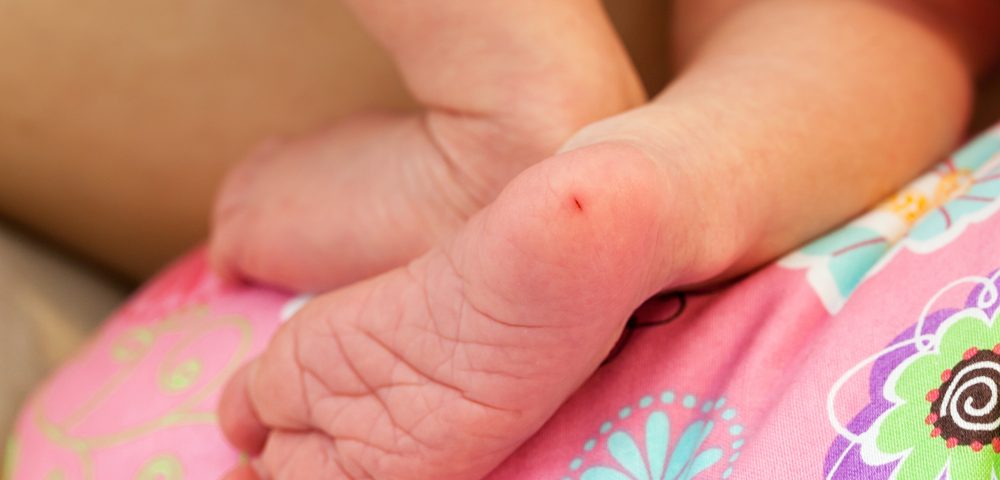The Sickle Cell Support Network, an NGO, says Nigeria records about 150,000 sickle cell births annually but 75 per cent of this number never get to see their fifth birthday.
The President of the group, Dr Deborah Onokpono, made this known in an interview with the News Agency of Nigeria (NAN) on Wednesday in Calabar as part of efforts to sensitise people about sickle cell condition.
She said: “Sickle is a medical condition and not inflicted upon us by one spiritual force or deity, people are born with it and it is not contagious but inherited.’’
Onokpono said though we have what we call bone marrow transplant, which gives a patient a 50:50 survival chance, the condition had no cure yet.
She advised those who were about getting married to know their genotype and that of their spouses to be, as prevention was the best way to control sickle cell.
“Sickle cell is preventable if people with the AS genotype do not get married to spouses who also have the AS genotype,” she said.
She noted that the awareness is still low in Nigeria when you compare it to HIV and stigmatisation is high as the victims are seen as people who would die soon.
Similarly, a haematologist, Dr Ufon Esien, said the condition is prevalent in sub-Saharan Africa, so countries around this region should enhance the awareness of the condition amongst their citizens.
“Children with sickle cell normally had hand and foot syndrome, joint pains as they grew older, they may also have kidney problems, acute chest syndrome and even anaemia, these conditions were not curable but manageable,’’ the expert said.
Dr Esien however advised parents not to begin with analgesics that were highly addictive because the sickle cell patient may become addicted and that would take a difficult and long process to remedy.
Also, the President of the Medical Women Association of Nigeria (MWAN), Cross River chapter, Dr Jacinta Okoi-Obuli, said they came to let people know that there was nothing to be ashamed of if someone had sickle cell.
“Sickle cell is not something to be ashamed of because we have doctors and other professionals who have the condition but have succeeded in different spheres of life,” she said.
She added that MWAN was partnering with different laboratories in the state, so, they could simply take blood samples of people that wanted to know their genotype and provide credible results.
She advised people who wanted to check their genotype to find out the credibility of the laboratory as there were many quacks around.
“We have cases where people have done their genotype in three different labs and have three different results and they go ahead to get married only to give birth to children with sickle cell,” she said.
She stated that the notion that love was blind was no longer tenable, and advised would be couples to endeavour to know their genotype to prevent a future of pain.
On his part, the President, Association of Resident Doctors, Cross River chapter, Dr Antigua Cobham, called on the Federal Government to invest in researches to discover a cure for sickle cell.
He noted that sickle cell was more in the tropics as Nigeria had the highest number of people living with sickle cell in the world while Cross River had the highest number of carriers in Nigeria.
“We must not always wait for the white man to carry out researches for us, this is more our problem now than theirs.
“Nigeria has the highest number of persons living with the condition in the world and Cross Rivers has the largest number of people with this problem in Nigeria,” he said.
Responding, Dr Inyang Achibong, the state Commissioner for Health, who was represented by Mrs Magdalene Nka, Director Medical Laboratory Services, Ministry of Health, said the state government was aware of the high rate of sickle cell in the state.
She said the idea of having a sickle cell centre in the state was not a bad one as such centre would subsidise the cost of the tests or even make it free.
“Now that the awareness is increasing, there could be policies made because looking at our policies, there is nothing specific about sickle cell, it is just general health, we can start looking into this as the awareness is growing,’’ she said.
She added that medical personnel should know that when they saw a carrier, they would have to give their all, both love and expertise, as the victims did not make themselves that way but were born into it.
NAN reports that the world Sickle Cell Day is marked annually on June 19.
This year’s theme is “Sickle Cell: Past, Present and Future’’. (NAN)

